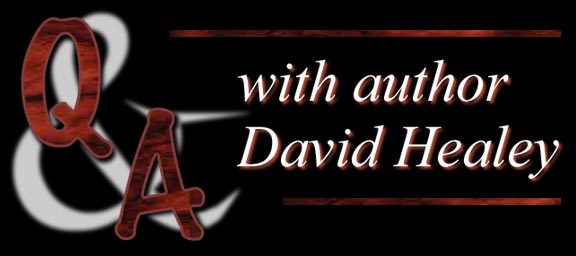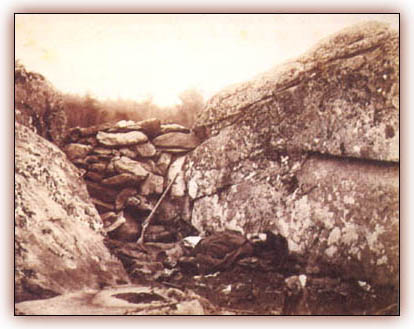|
|
|

|
Q. Where did you get the idea for SHARPSHOOTER? A. I wanted to write a Civil War novel that was different from others that have mainly been dramas set against the backdrop of the war. To do this, I began to ask myself a lot of "what if" questions - such as "what if" the South had tried to assassinate General Grant. What I came up with was a story about a very personal war. It doesn't take place on the battlefield, but it's just as brutal and the outcome of the whole war could change depending on the sharpshooter's bullet.
Q. How did you get your interest in history? A. I
grew up on a small farm in an old farm house that was built during
the 1860s. It was a very rural area but located at an interesting
crossroads of the National Road that led west from Baltimore
and the Washington Road that led north from the capital. There
was a lot of action in the area during the Civil War, with Union
troops passing through all the time. In fact, a neighbor used
to tell me stories about how his grandfather would hide his horses
on the woods on our farm, out of sight of passing Yankee troops.
Q. Are you planning any other books besides SHARPSHOOTER? A. Yes. My next novel is REBEL TRAIN, about an elite group of Confederate raiders who capture Abraham Lincoln on his way to deliver the Gettysburg address.
Q. How long did it take you to write SHARPSHOOTER? A. With all the research and then the actual writing, it took about two years. I used to work an evening shift, so I would write all morning and then go to my newspaper job. Saturdays and Sundays I'd be at the computer, too - basically whenever I found time to work. It takes an unbelievable amount of effort to write a novel. You've got to stick to it.
Q. Which character would be the most fun to have a beer with? A. Definitely Uriah Snodgrass. He likes to have a good time. He has a sense of humor. Don't play poker with him, though - you'll lose whatever is in your wallet, and then some.
Q. The main female character in the book is a Confederate spy in Washington. Tell us something about her.
Q. What's the hardest part about writing a book like SHARPSHOOTER? A. What's tough is that it's not set against the backdrop of any particular battle or event - the attempt to assassinate Grant takes place all on its own. The novel creates its own historical scenario. Of course, I've been as faithful as possible to the larger history of the Civil War era.
Q. The assassination attempt is pure fiction, then? A. Who can say for certain that it didn't happen? Don't forget that Confederate agents infiltrated Grant's headquarters at City Point and planted a bomb that killed an aide standing near him.
Q. What will someone enjoy most about reading "Sharpshooter"? A. The history, the plot, the characters - I think the three of those combine to make this a different kind of historical thriller.
Q. Who are some of your favorite writers? A. I enjoy the Civil War books by Bernard Cornwell and "Confederates" by Thomas Keneally. Oddly enough, Cornwell is British and Keneally is Australian, but they have a real feel for American history. Howard Bahr's "The Black Flower" is also wonderful. Douglas Jones also has some fine historical novels, like "Elkhorn Tavern" and "The Barefoot Brigade." I'm a big fan of Mark Twain - I keep a postcard tacked above my desk of the room where he wrote "Huckleberry Finn." It's on the third floor of his manson in Hartford, Connecticut. I'd love to sneak in there sometime with my laptop and write for a couple of hours, just to see how it would turn out. |
 |
|